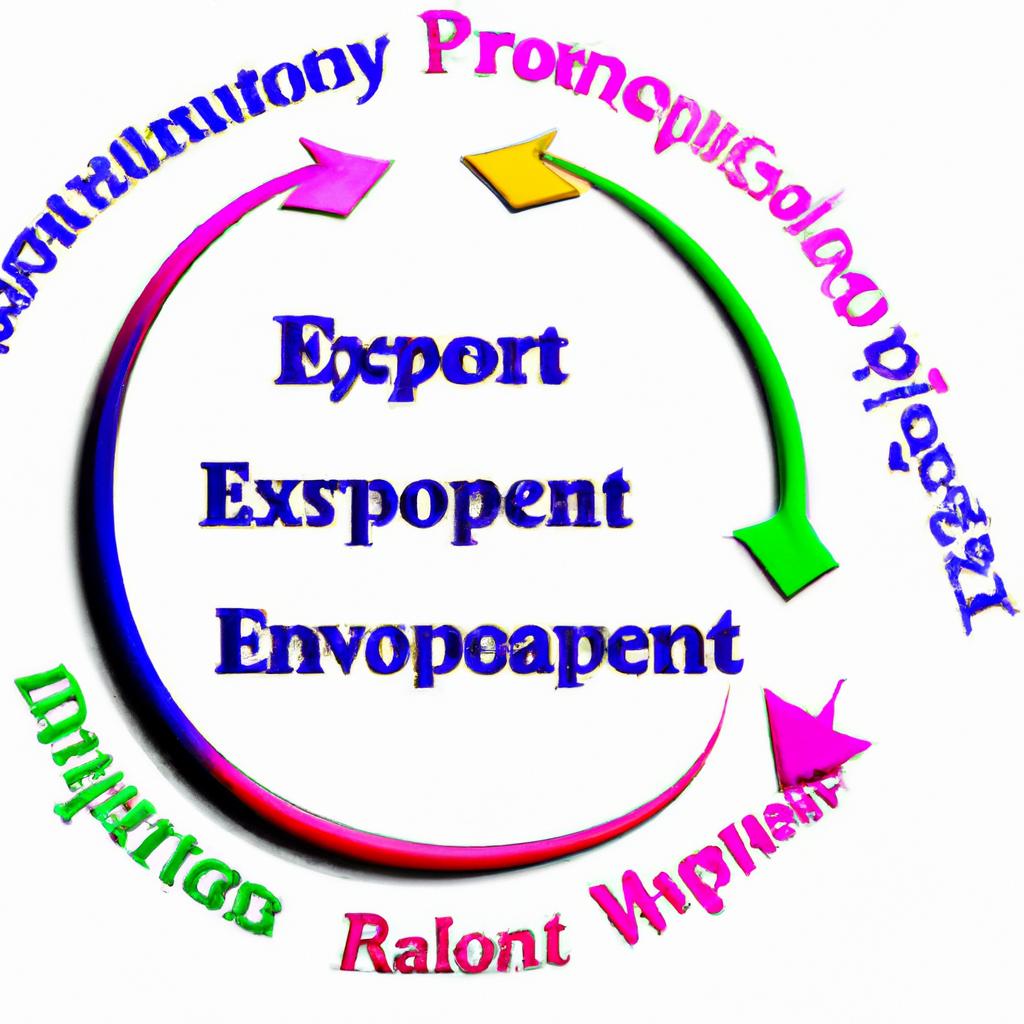Nội dung bài viết
Introduction

In today’s fast-paced business world, staying competitive and efficient is crucial for success. That’s where Enterprise Resource Planning (ERP) software comes into play. So, what exactly is ERP software, and why is it essential for businesses like yours?
Definition of ERP software
ERP software refers to a suite of integrated applications that streamline and automate various business processes. It provides a centralized database management system, allowing different departments to access and share real-time information seamlessly. From inventory management to financials, human resources, and customer relationship management (CRM), ERP software consolidates and organizes crucial data, fostering efficiency and collaboration across the organization.
Importance of using ERP software for businesses
Imagine running a business without proper coordination between your departments. Fragmented data, manual processes, and delays in information sharing can hinder productivity, lead to errors, and create inefficiencies. This is where ERP software becomes a game-changer.
With ERP software, you can break down communication barriers, improve data accuracy, and streamline operations. It enables you to automate routine tasks, such as generating reports or managing inventory, freeing up your employees’ time to focus on more critical strategic initiatives. Moreover, ERP software provides real-time analytics and insights, empowering you to make data-driven decisions and adapt to market changes swiftly.
By integrating various business processes, ERP software promotes seamless collaboration and enhances visibility across departments. It allows you to gain a holistic view of your business, helping you identify bottlenecks, optimize workflows, and improve overall efficiency. Furthermore, ERP software offers scalability and flexibility, enabling you to adapt and grow as your business evolves.
In the next sections, we’ll explore the key features of ERP software, different types available, top software providers, essential factors to consider when choosing the right ERP software for your business, and conclude with the future outlook of ERP software. So, let’s dive deeper into this transformative technology that can revolutionize your business operations and drive your success forward.
Stay tuned for the upcoming sections where we’ll delve into the world of ERP software. Discover the key features that make it an indispensable tool for businesses like yours, explore the various types available, and find out which software providers lead the industry. Join me on this journey as we unravel the secrets to selecting the perfect ERP software tailored to your specific needs.
Key Features of ERP Software

In today’s fast-paced business landscape, ERP software offers a range of indispensable features that can transform the way you manage your operations. Let’s explore some of the key features that make ERP software a powerful tool for businesses like yours.
Centralized Database Management
ERP software provides a centralized database management system that consolidates all your crucial business data in one place. This allows different departments to access and share information seamlessly, eliminating data silos and improving collaboration. With a centralized database, you can ensure data accuracy, reduce redundancies, and enhance the overall efficiency of your organization.
Integration of Various Business Processes
One of the significant advantages of ERP software is its ability to integrate various business processes. From finance and accounting to supply chain management, human resources, and CRM, ERP software breaks down departmental barriers, promoting cross-functional collaboration. By integrating these processes, you can streamline operations, eliminate manual data entry, and improve communication and visibility across departments.
Real-Time Analytics and Reporting
ERP software empowers you with real-time analytics and reporting capabilities, providing you with valuable insights into your business performance. With robust reporting tools, you can generate comprehensive reports on key metrics, track KPIs, and identify trends and patterns. This enables you to make data-driven decisions, monitor progress, and quickly respond to market changes.
Automation of Routine Tasks
Manual and repetitive tasks can consume valuable time and resources. ERP software automates routine tasks, freeing up your employees to focus on more strategic initiatives. From automating payroll processing and invoicing to generating purchase orders and managing inventory, ERP software improves efficiency and reduces the risk of errors.
Scalability and Flexibility
As your business grows and evolves, you need software that can scale and adapt to your changing needs. ERP software offers scalability and flexibility, allowing you to add new modules, users, or functionalities as your business expands. This ensures that your ERP system can grow alongside your organization, providing a long-term solution that supports your future goals.
These key features of ERP software can revolutionize the way you operate your business. From centralized database management to real-time analytics and automation, ERP software empowers you to enhance efficiency, improve decision-making, and drive growth. In the next sections, we’ll explore the different types of ERP software available and highlight the top software providers in the industry.
Types of ERP Software
When it comes to ERP software, there are various options available to cater to different business needs. Let’s explore the different types of ERP software and understand their advantages and use cases.
On-premise ERP software
On-premise ERP software refers to a traditional model where the software is installed and maintained on servers within the organization’s premises. This type of software provides complete control and customization options, making it suitable for businesses with specific requirements or strict data security regulations. However, on-premise ERP software requires substantial upfront investment in hardware, software licenses, and ongoing maintenance.
Cloud-based ERP software
Cloud-based ERP software, also known as Software as a Service (SaaS) ERP, is hosted on remote servers and accessed through the internet. This type of ERP software offers scalability, flexibility, and the convenience of remote access. With cloud-based ERP, businesses can enjoy automatic updates, reduced IT infrastructure costs, and improved collaboration between geographically dispersed teams. Additionally, cloud-based ERP software provides seamless integration with other cloud-based applications, enabling enhanced productivity and efficiency.
Open-source ERP software
Open-source ERP software refers to software that is available for free and can be modified and customized according to specific business needs. It allows businesses to have complete control over the source code and offers the advantage of a vast community of developers contributing to its continuous improvement. Open-source ERP software provides cost savings, flexibility, and the ability to adapt the software to unique business processes. However, it may require more technical expertise and ongoing maintenance.
Industry-specific ERP software
Industry-specific ERP software is designed to meet the unique requirements of specific industries or sectors. These software solutions have preconfigured features and functionalities tailored to the specific needs of industries such as manufacturing, healthcare, retail, or construction. Industry-specific ERP software offers industry-specific modules and workflows, ensuring efficient operations and compliance with industry regulations. Implementing industry-specific ERP software can lead to enhanced productivity, streamlined processes, and improved decision-making within the targeted industry.
In the next section, we will explore the top software providers for ERP, helping you identify reputable and reliable options for your business. Stay tuned to discover the leading players in the ERP software market and their offerings tailored to your specific needs.
Top Software Providers for ERP
When it comes to choosing the right ERP software for your business, selecting a trusted and reputable provider is crucial. Here are some of the top software providers in the market:
SAP ERP
SAP ERP is a leading provider of comprehensive ERP solutions. With a strong focus on integration, SAP ERP offers a wide range of modules to streamline various business processes. From finance and human resources to supply chain management and customer relationship management, SAP ERP provides robust functionalities and scalability for businesses of all sizes.
Oracle ERP Cloud
Oracle ERP Cloud is another prominent player in the ERP software market. Their cloud-based ERP system offers flexibility, scalability, and advanced analytics capabilities. With Oracle ERP Cloud, businesses can benefit from real-time insights, seamless integration, and a comprehensive suite of modules for efficient management of their operations.
Microsoft Dynamics 365
Microsoft Dynamics 365 is a versatile ERP solution that integrates seamlessly with other Microsoft products. With its user-friendly interface and extensive customization options, Microsoft Dynamics 365 is an excellent choice for businesses looking for a flexible and scalable ERP software. It offers modules for financial management, supply chain, sales, and customer service, among others.
Infor ERP
Infor ERP is known for its industry-specific solutions that cater to the unique needs of various sectors. Whether you’re in manufacturing, healthcare, distribution, or hospitality, Infor ERP offers tailored modules and deep industry expertise. Their user-friendly interface, advanced analytics, and automation capabilities make Infor ERP a popular choice among businesses seeking industry-specific solutions.
Epicor ERP
Epicor ERP is designed for mid-sized businesses seeking comprehensive ERP functionality. With its focus on automation, Epicor ERP streamlines processes, improves productivity, and enhances collaboration. The software offers modules for financial management, inventory control, supply chain management, and more, empowering businesses to optimize their operations and drive growth.
When choosing an ERP software provider, consider your specific business requirements, scalability needs, and budget constraints. These top software providers have a proven track record and offer a range of features and functionalities to meet the needs of diverse businesses. Evaluate their offerings, consider customer reviews, and select the ERP software provider that aligns best with your business goals and objectives.
Conclusion
In conclusion, choosing the right ERP software for your business is a critical decision that can significantly impact your operations and overall success. By harnessing the power of ERP software, you can streamline processes, enhance collaboration, and make data-driven decisions to stay ahead in today’s competitive landscape.
Throughout this article, we have explored the definition and importance of ERP software, delved into its key features, discussed different types of ERP software and highlighted some of the top software providers in the market. We have also discussed the essential factors to consider when selecting the right ERP software for your business.
When evaluating ERP software options, it is crucial to analyze your business requirements and goals. Consider the specific functionalities and features that align with your industry and operations. Scalability and customization options are also crucial, as your business may grow and evolve over time, requiring a flexible software solution.
User-friendliness and ease of implementation are significant considerations as well. Look for ERP software that is intuitive and user-friendly, ensuring a smooth transition and minimizing disruption during implementation. Additionally, consider the costs and pricing models associated with the ERP software. Evaluate both upfront costs and ongoing maintenance fees to determine the most cost-effective solution for your business.
Lastly, integration capabilities should not be overlooked. Ensure that the ERP software seamlessly integrates with your existing systems, such as CRM or e-commerce platforms, to enable smooth data flow across your organization.
In conclusion, ERP software offers immense benefits for businesses, from improved efficiency and collaboration to better decision-making and scalability. As the digital landscape continues to evolve, ERP software will play an increasingly crucial role in optimizing business operations.
When it comes to selecting the right ERP software for your business, consider the unique needs and goals of your organization. Evaluate different options, compare features and functionalities, and choose a reliable software provider that aligns with your requirements.
At law.kyniemsharp10nam.vn, we understand the significance of choosing the right ERP software. With our expertise and industry knowledge, we can help guide you through the selection process, ensuring that you find the perfect ERP software solution that drives your business forward.
Remember, making an informed decision when it comes to ERP software can be the key to unlocking your business’s true potential. So, take the next step towards digital transformation and embrace the power of ERP software today!
Contact us at law.kyniemsharp10nam.vn to learn more about how ERP software can revolutionize your business.
